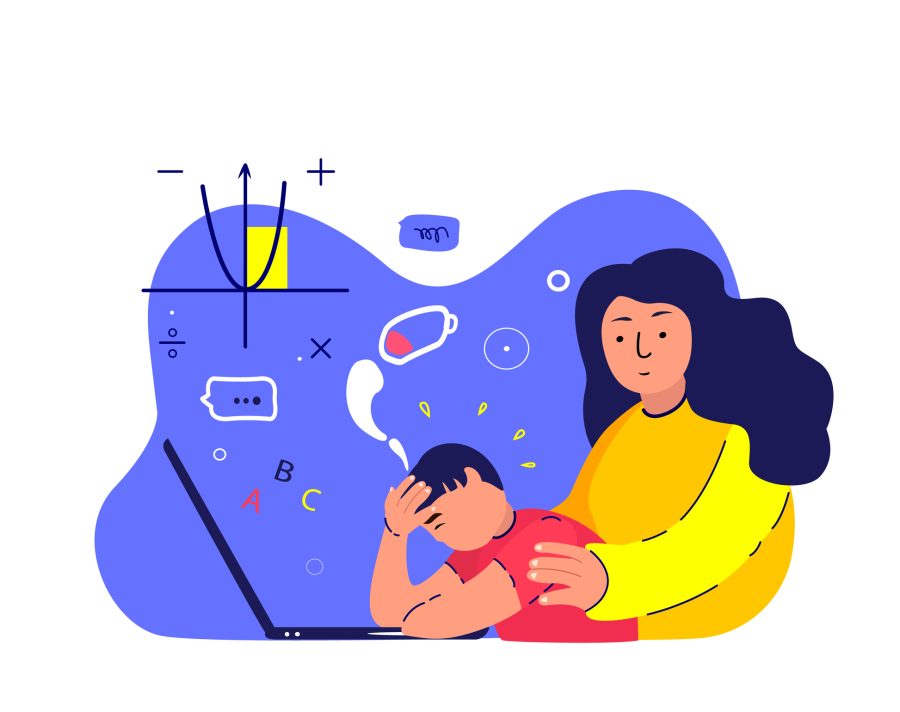Who suffered the most during homeschooling? Parents of young kids and older children

New data reveals who suffered the most from homeschooling during lockdown, explains Dr Elkomy, a research fellow from the Centre for the Understanding of Sustainable Prosperity at the University of Surrey.
Dr Shimaa Elkomy
As a mother of two young children, the start of lockdown was the cause of unbelievable distress.
The role of school goes far beyond education. It is key for the development of the children and their personal and intellectual skills.
I felt entirely torn between the competing responsibilities of giving my children these emotional and social connections, while also needing to act as the teacher to ensure their education would not suffer.
It turns out that I was not alone in feeling such intense strain.
The psychological impact felt by family members during lockdown was not shared out equally, our team’s latest research has found.
From March 2020 until April 2021, the Office for National Statistics* collected weekly data from more than 4,500 families across England, Scotland and Wales. The survey asked how satisfied, happy, worthwhile and anxious people felt during that time and their answers revealed some interesting as well as distressful realities.
From the data, we have learned that the wellbeing of parents of children aged 1-4 and 5-10 were strongly worsened by homeschooling their children.
Conversely, for children aged 11-15, the wellbeing burden fell on the children themselves rather than their parents.
Our analysis shows that parents of young children up the age of 10 were 65% more likely to feel worse when taking on this role. While their children showed statistically insignificant changes to their wellbeing.
Children in their early teens were 24% more likely to experience negative wellbeing effects due to homeschooling. While their parents again showed insignificant changes to their wellbeing.
Homeschooling
Among all the restrictive and lockdown measures taken during the pandemic, school closure was by far the worst blow for wellbeing across all UK nations, according to the ONS data.
For many parents home schooling caused a huge strain on their relationship with their children. Without help from grandparents, friends or even professional caregivers, they had to juggle work alongside the relentless need to supervise their children through every activity.
Enormous demands were put on parents of young children to enable learning to be delivered online from home. Outcomes were monitored by teachers, and parents had the sole responsibility of supervising, guiding and following up on their children’s education, alongside their other work, care and family needs.
The result was a wellbeing crisis where parents felt significantly worse off, had less sleep, less time to refresh their mood and maintain their mental health, more anxiety and less satisfaction with life.
While being supported by a partner either in the form of marriage or civil partnership was seen as a booster for wellbeing, nevertheless, parents showed significantly less happiness and less satisfaction with life during this time.
What next?
The pandemic accelerated a problem with which parents were already battling. An ongoing decline in the number of childcare providers, which is largely due to the fall in the number of childminders.
A survey by the Professional Association for Childcare and Early Years (PACEY) in March 2020 found that fewer than half of childminders that closed due to the Covid-19 pandemic planned to re-open within the year.
As a mum, I can tell you that the moment I was able to reach out for external support during the pandemic, there were simply no childminders available.
I called around 25 individuals in Surrey who all said they’d left the industry because of the pandemic.
As parents battled to homeschool their children, there was no institutional support from government, local councils or charities to help them through and ensure additional childcare support was available, when other external help from friends and family was still fraught with difficulty.
It seemed to me that policymakers felt that if you could breathe oxygen, you were considered safe and healthy. But we were suffocating from stress.
We now face a national crisis in mental health, because our health protection measures were focused purely on preventing infection, and never on what the pandemic was doing to our daily lives.
Of all the factors that were put under strain during the pandemic, from our finances to physical health, none were stressed as much as our relationships, according to our research.
*From the early start of the pandemic the UK government dedicated millions of tax-funds to collect a weekly survey run by the Office of National Statistics (ONS) to reflect the behaviours, concerns and wellbeing of people during the pandemic. This is the Opinion and Lifestyle Survey: Covid-19 module. The survey itself is not publicly available but requires an accreditation by the ONS with a very regulated access through the ONS secured network of research. Dr Chris Deeming from the School of Social Work and Social policy at the University of Strathclyde leads this ambitious project that aims at showing some policy evidence for these intrinsic inequalities in British society.
